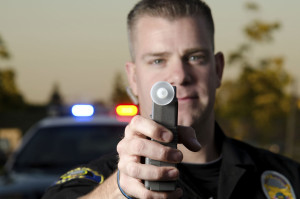The Maryland Court of Special Appeals issued an opinion last week in a case that should be read by every Maryland personal injury lawyer who is putting up or cross-examining expert witnesses at trial.
What Happened in Yiallouro v. Tolson?
In Yiallouro v. Tolson, the plaintiff was injured in a car accident while in the scope of his employment. The case went to a Montgomery County jury who awarded the victim and his wife $925,000.
After the verdict, the trial judge made two conclusions that blew up the jury’s verdict. First, the judge concluded that he had made a mistake in letting the plaintiffs’ vocational rehabilitation expert testify about the plaintiff’s lost wages at trial – over $400,000 – because her opinions were speculative and without sufficient foundation. The trial judge also concluded that the pain and suffering damages were excessive and perhaps influenced by the testimony of the vocational rehabilitation expert.
 This ruling put plaintiffs’ lawyer into a box: trial judges have a lot of discretion to vacate verdicts that the court deems excessive. So he did the only thing he could do: try the case again. He even got the vocational rehabilitation expert back, getting her past a Frye/Reed hearing. (2020 Update: Daubert is now the rule in Maryland.)
This ruling put plaintiffs’ lawyer into a box: trial judges have a lot of discretion to vacate verdicts that the court deems excessive. So he did the only thing he could do: try the case again. He even got the vocational rehabilitation expert back, getting her past a Frye/Reed hearing. (2020 Update: Daubert is now the rule in Maryland.)
Learning from the Last Trial
The defense lawyers – channeling their inner Bill Belichick – did something really smart: they learned from the first trial. Most trial lawyers will tell you that accident reconstruction experts usually are a waste of time. The jury draws its own conclusions and ignores the expert, according to conventional wisdom.
The defense lawyers, in this case, ignored this conventional wisdom and brought an accident reconstruction expert to testify about his measurement of ground distances and his estimations of speed, stopping time, and stopping distance—including his assumptions of average reaction times. Defense verdict. Contributory negligence. Game over. Riches to rags. Thankfully for the plaintiffs, the Maryland Court of Special Appeals, in an opinion by Judge Albert J. Matricciani, reversed the trial court, finding that the expert had been appropriately qualified.
Future lost wage damage claims present challenges because there is no way to determine the future and, on some theoretical level, an expert who offers future lost wages is guessing. Still, Maryland law allows for damages for future lost wages, if for no other reason than the incredible injustice that would ensue if the law just dismissed future lost wage claims as speculative on their face.
How to Make a Lost Wages Argument?
So plaintiffs’ lawyer used the three-step game plan good accident attorneys use when claiming future lost wages. Get an expert opinion from an orthopedic doctor, have the voc rehab expert translate the plaintiff’s limitations into lost income, and then have the economist give the jury the real value of the lost stream of income.






